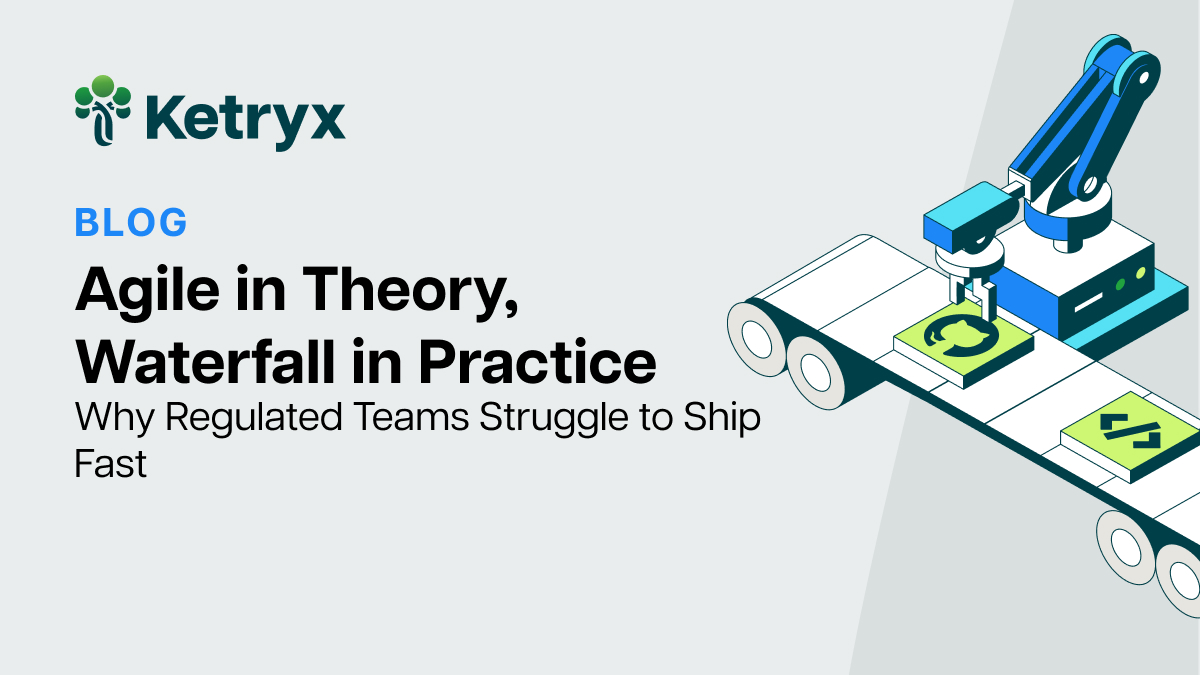
Understanding FDA Guidance on AI in Medical Devices and Predetermined Change Control Plans (PCCPs)
Table of Contents
Understanding FDA Guidance on AI in Medical Devices and Predetermined Change Control Plans (PCCPs)
The integration of Artificial Intelligence (AI) into healthcare, particularly within medical devices, has the potential to revolutionize patient care, diagnosis, and treatment. However, the dynamic and evolving nature of AI presents unique challenges for regulatory bodies like the U.S. Food and Drug Administration (FDA). To address these challenges, the FDA has issued draft guidance on the use of AI in medical devices, including the introduction of Predetermined Change Control Plans (PCCPs) to manage future updates to AI algorithms. This blog provides an in-depth exploration of the FDA's AI guidance, how it intersects with PCCP, and what it means for medical device manufacturers.
On March 15, 2024, the FDA released "Artificial Intelligence and Medical Products: How CBER, CDER, CDRH, and OCP are Working Together," outlining the agency's coordinated approach to AI. This document is designed to complement the "AI/ML SaMD Action Plan" and signifies a collaborative effort among the FDA's Center for Biologics Evaluation and Research (CBER), the Center for Drug Evaluation and Research (CDER), the Center for Devices and Radiological Health (CDRH), and the Office of Combination Products (OCP). Together, these groups are working to ensure alignment and share insights on AI applications in medical products. In April 2024, the FDA released “Predetermined Change Control Plans for Medical Devices: Draft Guidance for Industry and Food and Drug Administration Staff.” This draft guidance outlines a framework for manufacturers to predefine modifications, such as AI/ML algorithm updates, to ensure safety and efficacy without resubmitting for approval. It emphasizes the need for rigorous documentation, validation, and risk management processes to support postmarket updates under the PCCP.
2024 PCCP Draft Guidance
On August 22, 2024, the FDA released a new draft guidance on the Predetermined Change Control Plan (PCCP). The draft guidance extends Predetermined Change Control Plans to cover all types of medical devices, beyond just those with AI or machine learning capabilities.
The FDA stated that while PCCPs initially focused on AI/ML-enabled devices, this guidance now applies to medical devices that require premarket approval applications (PMAs) or premarket notification (510(k)), including device-led combination products, as outlined under section 515C of the FD&C Act. Under section 515C of the Federal Food, Drug, and Cosmetic Act, the FDA can authorize or clear a PCCP outlining planned modifications to a device, provided that the device continues to meet safety and effectiveness standards. Also, as part of the 2024 PCCP Guidance, Class I and II devices must remain substantially equivalent to the original predicate. If the manufacturer makes subsequent changes aligned with the pre-approved PCCP, a new 510(k) notification or PMA supplement will not be necessary, ensuring compliance without additional regulatory submissions.
This broadened applicability allows devices that do not incorporate AI or machine learning software to use PCCPs for pre-approved modifications, aiming to streamline regulatory processes and support iterative improvements across a wider range of devices.
Understanding the FDA's AI Guidance and PCCP
The FDA recognizes the transformative potential of AI and Machine Learning (ML) in healthcare, particularly in Software as a Medical Device (SaMD). However, the agency also acknowledges the need for a robust regulatory framework to ensure that AI-driven medical devices are safe, effective, and reliable. The PCCP is part of this robust framework, allowing the FDA to understand how manufacturers will manage future updates with AI/ML-enabled medical software.
Key Components of the FDA’s AI Guidance:
Total Product Lifecycle (TPLC) Approach: The FDA's AI guidance emphasizes a Total Product Lifecycle (TPLC) approach to the regulation of AI/ML-based SaMD. This approach involves ongoing monitoring and evaluation of the device's performance throughout its lifecycle, not just at the time of initial approval. The goal is to ensure that AI-driven devices continue to meet safety and effectiveness standards as they evolve and learn from new data.
Good Machine Learning Practices (GMLP): The FDA outlines Good Machine Learning Practices (GMLP) as a set of principles and best practices for the development, testing, and monitoring of AI/ML-based medical devices. These practices include transparency in the AI algorithm's design, validation, and ongoing performance monitoring. Adhering to GMLP is crucial for manufacturers to ensure that their AI-driven devices are reliable and trustworthy.
Transparency and Accountability: The FDA's guidance highlights the importance of transparency in AI/ML algorithms. Manufacturers are expected to provide clear and understandable information about how the AI algorithm works, including the data it uses, the decision-making process, and the potential risks. This transparency is essential for building trust with healthcare providers and patients.
Risk Management: AI-driven devices must be designed with risk management in mind. The FDA recommends that manufacturers conduct thorough risk assessments to identify potential hazards associated with the AI algorithm and implement measures to mitigate these risks. This includes evaluating how changes to the AI algorithm might impact the device's performance.
Real-World Performance Monitoring: Given the dynamic nature of AI, the FDA encourages manufacturers to establish mechanisms for real-world performance monitoring. This involves collecting and analyzing data from the device's use in clinical settings to detect any performance issues or safety concerns that may arise over time.
What is a Predetermined Change Control Plan (PCCP)?
A Predetermined Change Control Plan (PCCP) is a regulatory framework introduced by the FDA to address the challenges of managing changes to AI/ML algorithms in medical devices. Traditionally, any modification to a medical device, particularly those involving its software or algorithm, would require a new submission to the FDA for approval. This process can be time-consuming and may hinder the rapid evolution and improvement of AI technologies.
The PCCP framework allows manufacturers to implement certain changes to AI algorithms without requiring a new submission, provided that these changes fall within the scope of a pre-approved plan. The PCCP outlines the types of modifications that are anticipated, the methods for implementing and validating these changes, and the criteria that will ensure the device remains safe and effective.
Key Elements of a PCCP
Change Protocol: A detailed description of the types of changes that the manufacturer anticipates and how these changes will be managed within the predefined boundaries of the PCCP.
Algorithm Impact Assessment: An analysis of how changes to the AI algorithm will affect the device's performance, safety, and effectiveness. This assessment ensures that modifications do not introduce new risks.
Verification and Validation Plan: A plan outlining how the manufacturer will verify and validate changes to ensure continued compliance with regulatory standards. This includes testing the AI algorithm after changes are made to confirm that it still meets the required performance criteria.
Change Implementation and Monitoring: Guidelines for how changes will be rolled out, monitored, and reported. The PCCP requires manufacturers to document all changes and provide a mechanism for real-time monitoring to detect any potential issues.
For those looking for more detailed guidance on PCCP, check out our detailed blog covering PCCP Compliance.
The Intersection of FDA AI Guidance and PCCP: Challenges and Opportunities
The FDA's AI guidance and the PCCP framework are designed to work together to address the unique challenges of regulating AI-driven medical devices. While these regulatory tools provide a pathway for innovation, they also introduce new responsibilities for manufacturers.
Challenges
Regulatory Complexity: Navigating the FDA's AI guidance and implementing a PCCP requires a deep understanding of both AI technology and regulatory requirements. Manufacturers must ensure that their AI algorithms are designed, tested, and monitored in accordance with FDA standards.
Data Management: AI algorithms rely on large datasets to learn and improve. Ensuring the quality, accuracy, and security of these datasets is critical. The FDA's AI guidance and PCCP framework require manufacturers to implement rigorous data management practices, including data validation and bias mitigation.
Transparency and Accountability: As AI systems become more complex, ensuring transparency in decision-making processes becomes more difficult. The FDA's guidance emphasizes the importance of transparency, and the PCCP requires manufacturers to document and justify changes to AI algorithms.
Opportunities
Innovation Acceleration: The PCCP framework enables certain AI algorithm updates without new regulatory submissions, fostering rapid innovation and continuous device improvement.
Improved Patient Outcomes: By following the FDA's AI guidance and implementing a PCCP, manufacturers can ensure that their AI-driven devices remain safe and effective, leading to better patient outcomes and increased trust in AI technology.
Global Regulatory Harmonization: As other regulatory bodies worldwide consider similar approaches to managing AI-driven medical devices, the FDA's AI guidance and PCCP framework could serve as a model for global harmonization, simplifying the approval process for manufacturers operating in multiple markets.
Best Practices for Implementing FDA AI Guidance and PCCP
To successfully navigate the FDA's AI guidance and PCCP, manufacturers should adopt best practices that ensure compliance while fostering innovation:
Develop a Comprehensive PCCP: Manufacturers should create a detailed PCCP that outlines the types of changes anticipated, the methods for implementing these changes, and the criteria for verifying and validating them. This plan should align with FDA guidelines and be developed in collaboration with regulatory experts.
Adopt Good Machine Learning Practices (GMLP): Adhering to GMLP is essential for ensuring that AI algorithms are reliable and trustworthy. Manufacturers should implement GMLP throughout the development, testing, and monitoring of AI-driven devices.
Invest in Robust Data Management: High-quality data is the foundation of effective AI. Manufacturers should implement rigorous data management practices, including data validation, bias mitigation, and adherence to data protection regulations.
Ensure Continuous Monitoring and Transparency: Manufacturers should continuously monitor AI algorithms for performance, safety, and effectiveness. It’s important to document all changes to AI algorithms and provide clear and understandable information about how these changes impact the device's performance.
Engage with the FDA Early: Engaging with the FDA early in the development process can help manufacturers align their PCCP with regulatory expectations and avoid potential roadblocks.
The intersection of AI and PCCP under the FDA's guidance represents a transformative development in the healthcare sector. By providing a pathway for managing changes to AI algorithms, the FDA enables manufacturers to innovate rapidly while ensuring patient safety and device effectiveness. As AI technology continues to evolve, manufacturers that embrace the FDA's AI guidance and implement robust PCCPs will be well-positioned to lead the future of healthcare innovation.
Understanding and adhering to the FDA's AI guidance and PCCP framework is crucial for manufacturers aiming to bring AI-driven medical devices to market. By following best practices and staying informed of regulatory developments, manufacturers can navigate this complex landscape with confidence, driving innovation and improving patient care.
For more information on the FDA’s AI approach and guidelines, explore the resources below:
- FDA’s Approach to Artificial Intelligence and Machine Learning in Medical Devices
- Good Machine Learning Practice for Medical Device Development: Guiding Principles
- FDA’s Proposed Regulatory Framework for Modifications to Artificial Intelligence/Machine Learning (AI/ML)-Based Software as a Medical Device (SaMD)
How Ketryx Can Help with Creating and Managing a PCCP
Ketryx helps companies release software faster and in accordance with their PCCP by enabling developers to utilize modern development tools and practices while equipping quality teams with automated documentation and testing. Ketryx also automatically updates traceability and enables users to create engineering controls to ensure they are following their PCCP. Our team empowers manufacturers to use the tools that are used by software professionals today to develop and update software, like Jira and GitHub.

Lee Chickering is a Director of Client Operations at Ketryx and an expert in quality assurance and regulatory compliance, specializing in bridging quality management and customer success to drive operational excellence in the life sciences industry. With a diverse background spanning manufacturing, project management, and compliance at companies like Amgen, he has led the implementation of Quality Management Systems (QMS) aligned with ISO 13485, ISO 14971, and IEC 62304. Passionate about advancing quality in life sciences, he thrives on collaborating with organizations to enhance efficiency, compliance, and innovation.



